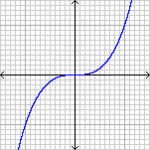
When this blog was young and curious, we poked sticks at the bizarre stuff language mavens, peevologists and other cranks were leaving on the sidewalk of public dialogue about language. That quickly got old and, besides, the stuff is icky and stinky. Still, every so often, I find a specimen so odd that it warrants passing mention.
Take the
Vocabula Review and today's announcement titled "Language Guardian" — a title taken from a piece about them in the
WSJ. First, look at that banner … seven flags with this claim below it:
A society is generally as lax as its language.
This makes a clear prediction, but one that's hard to test. How can we gauge the laxness of a language
or of a society? I'm happy to gather the data and run the test if somebody can suggest how to measure these things. Is it slackness of the vocal folds (say, measured by muscle activity over a particular utterance) and the corruptness of politicians (measured by the wealth they accumulate in office)? Is it the looseness of the requirement that subjects of clauses be agents (cf. "the dollar doesn't buy much right now") correlated with having loose bowels? (Sorry but that's actually the first definition of
lax in
Merriam-Webster's.)
I want to know who ranks where – does the wheel on the Indian flag reflect the steady motion of an orderly society where careful usage is respected? Does the amount of spilled beer on Melbourne pub tables compared to that found in Newcastle mean that our friends in Oz are lagging far behind the Pommies linguistically? (Or maybe I'm misjudging barkeeping in those places?)
What does it mean that the more visually appealing flags of officially English-speaking countries aren't represented? I like the flag of the Bahamas and South Africa's bold design. Are those societies being implicitly considered too lax to merit inclusion? If so, I'd protest that pretty vigorously.
Then, consider this, excerpted from the
WSJ article about the magazine:
Despite what linguists and lexicographers have been spouting for some years now, people -- including Wall Street Journal readers -- are interested in reading and writing and hearing clear, expressive, inspiring English.
Now, some of my best friends are linguists and lexicographers, and I pay some attention to what they spout. When and where has a linguist or lexicographer argued that people aren't interested in reading, writing and/or hearing "clear, expressive, inspiring English"? Do they even deal with such matters? Maybe the LSA should just own up and start a crusade for muddy, dull, deadening English? (Or did I miss something in the last
Bulletin?)
Finally, here's the closing plea to subscribe:
Do you, too, prize well-spoken, well-written language? Do you believe all right is correct and alright is nonsense, that predominant is an adjective and predominate a verb, that blithering politicians ought not to be elected to higher office, that a society is generally as lax as its language?
Finally, we've got examples of usage, and I do love data, but is
alright less clear, expressive or inspiring than
all right? I'm deeply opposed to
blithering politicians, but are we more worried about pols splitting infinitives or lying us into war?
All in all, the substance of the argument looks pretty incoherent and the
Vocabula's own prose is deader than Strunk, but it's without a single copy-editing glitch or misspelling that I can find.
 The Guardian has this piece out about "10 grammar rules you can forget: how to stop worrying and write proper" by their style guide author, David Marsh (pictured).
The Guardian has this piece out about "10 grammar rules you can forget: how to stop worrying and write proper" by their style guide author, David Marsh (pictured).














